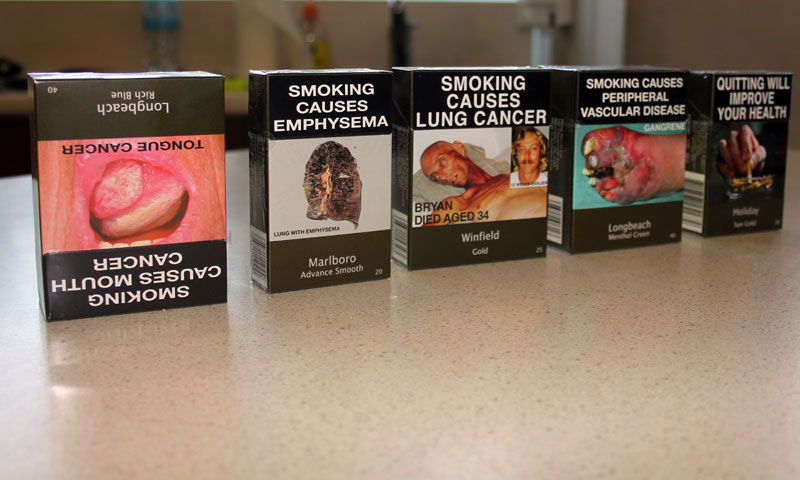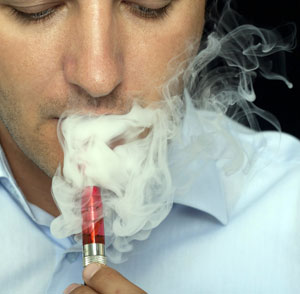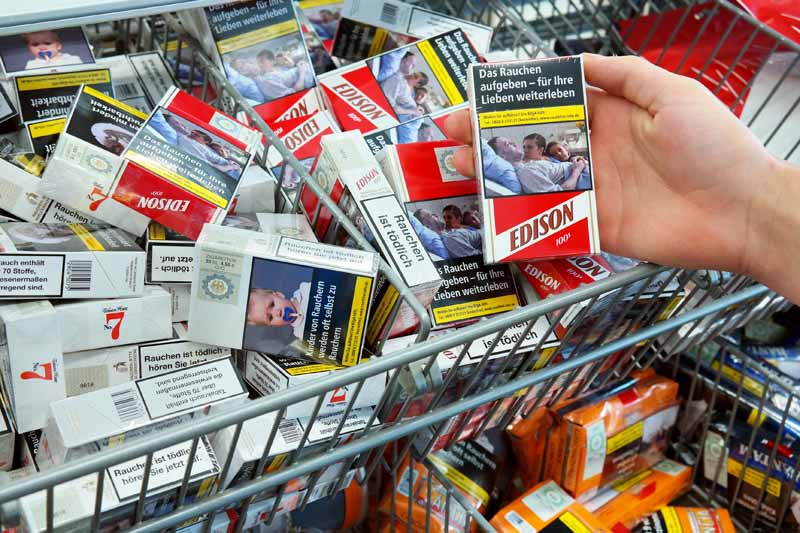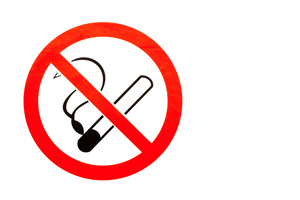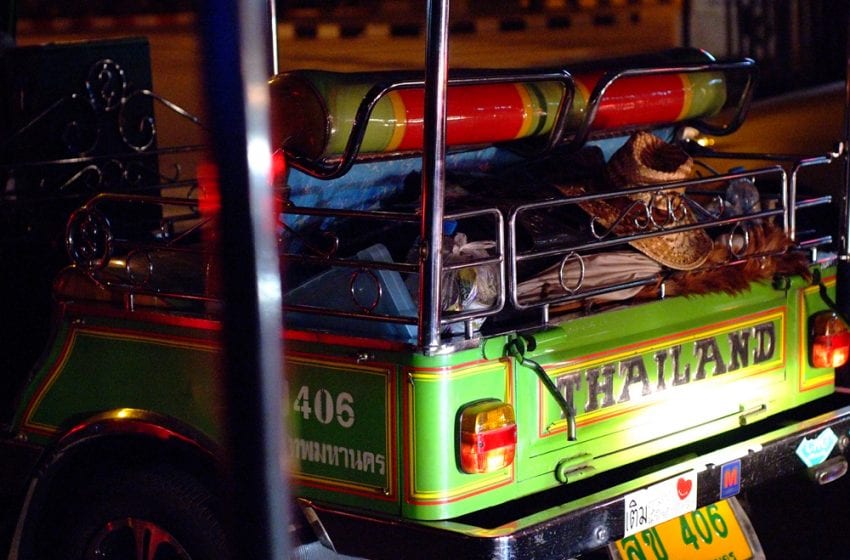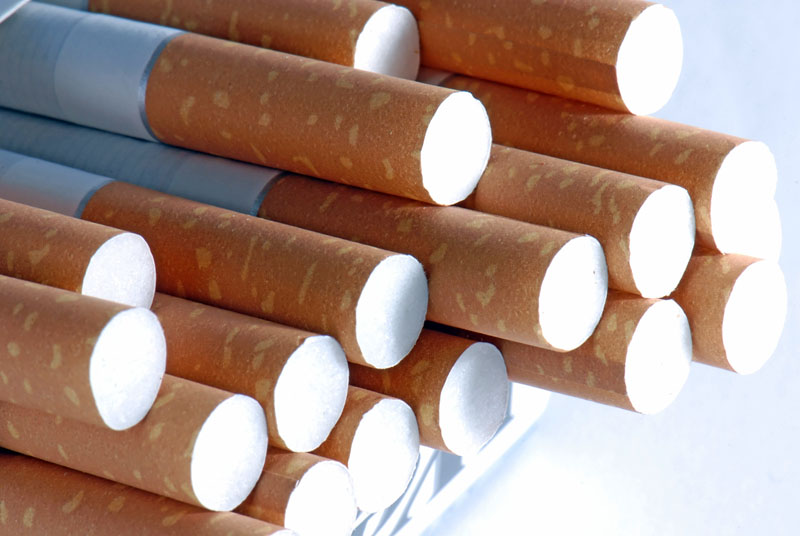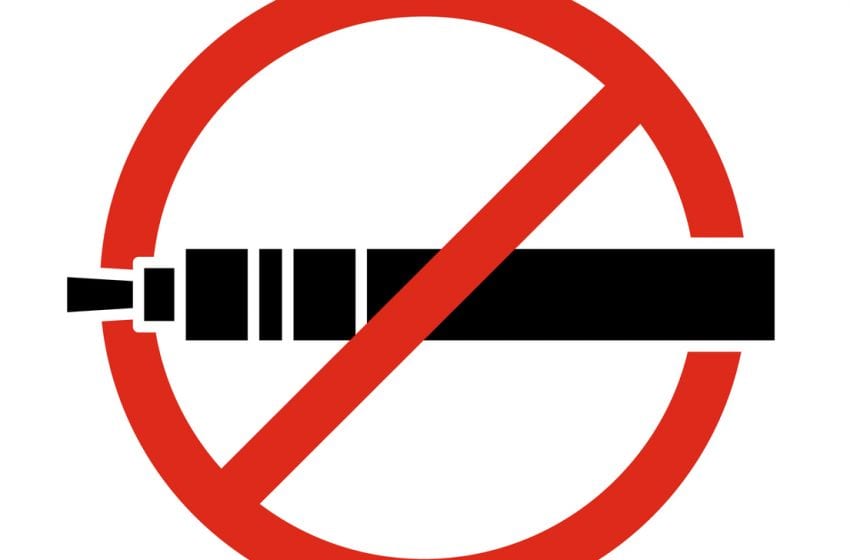The World Health Organization (WHO) yesterday commended Thailand’s tobacco control measures as it prepares to become the first country in Asia to require that all tobacco products are sold in standardized packaging, according to a story in The Bangkok Post.
“Thailand’s bold steps against tobacco – the single most important cause of preventable deaths worldwide – are commendable and reflect the country’s earnest efforts to promote the health and well-being of its people,” Poonam Khetrapal Singh, regional director of WHO Southeast Asia, was quoted as saying.
The new standardized-packaging regulations comprise the Government’s latest effort to curb smoking. They add to the 2017 Tobacco Control Act, which mandated a minimum age of 20 for tobacco purchases, and banned single-stick sales and tobacco advertisements, promotions and sponsorship.
As elsewhere, the standardized packaging regulations are due to restrict the use of logos, colors, brand images and promotional information, leaving only brand names and product names displayed in a standard color and font.
The Post said that under the new law, all tobacco products would have to be sold in standardized packs by September 2019. Thailand already had graphic health warnings covering 85 percent of tobacco-product packaging, it added.
Thailand has more than 11 million smokers, with, it is estimated, one in five Thai adults smoking.
Nearly 50 percent of men between the ages of 35 and 54 smoke, while one in every six Thais between the ages of 13 and 17 uses tobacco.
Tag: Thailand

Commended for plain packs

Thais favor harm reduction
Thai people would like to see the Government and the private sector working together on making available smoke-free alternatives to cigarettes, according to a story in The Nation citing the results of a new study.
The study, which was commissioned by Philip Morris (Thailand) Limited (PMTL) and conducted by Ipsos, found that 64 percent of the 1,200 smokers and non-smokers who participated nationwide said they would like their friends and families to have the opportunity to use potentially less harmful alternatives to cigarettes.
Although awareness within Thai society of less harmful products is limited to 15-20 percent of the population, the study found that 48 percent of people said innovative tobacco products should play a role in achieving a smoke-free Thailand.
Pongsathorn Ansusinha, the director of corporate affairs at PMTL, was quoted as saying there was no question that tobacco products were harmful to a smoker’s health, and that the best approach was to stop or never start smoking.
‘Nevertheless, many people will continue to smoke, and we believe that they have a right to accurate information about, and access to, smoke-free products that are a better choice than cigarette smoking,’ he said in a statement.
According to the survey, he added, 58 percent of the respondents or 69 percent of Thai smokers agreed that the government and the private sector should work together on smoke-free alternatives; so PMTL was fully committed to designing a smoke-free future in Thailand in an open and transparent way.
Standardized packs coming
Thailand’s Public Health Ministry yesterday approved a draft regulation requiring cigarettes to be sold in standardized packaging, according to a story in The Bangkok Post.
In addition, the regulation will require changes to be made to the compulsory graphic warnings currently included on packs.
The Public Health Minister, Dr. Piyasakol Sakolsatayadorn, said the regulation had been approved by the ministry’s national tobacco control committee, which he chairs.
Under the regulation, cigarette packs would not be allowed to include brand logos, promotional text or non-designated colors.
Piyasakol predicted that Thailand would become the 11th country but the first Asian nation to impose standardized cigarette packaging.
However, he did not say when this might occur.
Piyasakol said also that the pictures that were part of the health warnings currently included on cigarette packs would be changed.
They had been in use for five years and people might be overly familiar with them, reducing their effectiveness.
Smoking bans extended
Thailand’s Public Health Ministry is due to enforce tobacco-smoking bans in or at 81 newly-listed public places, including airport terminals, ATMs and hotel lobbies, according to a November 6 story in The Bangkok Post.
Separate smoking areas will be allowed in some places.
The list was published in the Royal Gazette, which indicated the bans would be enforced in 90 days.
New no-smoking zones include hospitals, clinics, schools, nurseries, homes for the elderly, health and massage parlors, libraries, learning centers, gymnasiums, swimming pools, ATMs, public toilets, grocery shops, theaters, game shops, drug stores, meeting venues, shopping centers, government offices and organizations, zoos, amusement and water parks, laundry shops, bus stops, piers, taxi and van stands, and public areas of airports, hotels and condominium buildings.
Areas within a five-meter radius of the entrances and exits of such places will also be no-smoking zones.
However, the ministry will allow universities, government offices, state enterprises and airports to have separate smoking areas.
Winning slowly but steadily
The solution to failure is not to redouble your efforts, but to change course, according to a story by Sinclair Davidson published in The Nation.
Davidson, who is a professor of economics at RMIT University in Melbourne, Australia, said that, during the past 10 years, Thailand had attempted to curb smoking by enlarging the size of picture health warnings on cigarette packs repeatedly. Now, the gruesome photos covered up to 85 percent of packs, yet the number of Thai smokers was increasing.
‘This incongruence ought to give Thai authorities pause to consider new ways to cut smoking,’ he said.
‘The most successful policies globally have usually been slow but steady – public education about health effects tends to discourage older smokers while cost and taxation tend to discourage youth from taking up the habit.’
Davidson said a better solution for Thailand would be to emulate Japan’s emphasis on education, teaching children from an early age about the dangers of smoking.
‘It is not a quick fix, of course,’ he said. ‘But if Thailand wants to lower the prevalence of smoking it should not follow the fashionable, but failed, plain packaging policies of Australia, France and the UK.’
But the UK was seen to provide one positive example. ‘The single largest contributor to reduced smoking rates in the UK – until the failed plain packaging policy was adopted – was the mainstreaming of electronic nicotine delivery devices,’ he said. ‘Alternate mechanisms to deliver nicotine to smokers sees many smokers substitute away from combustible tobacco products to safer products and in some cases to quitting altogether.’
Catering for Chinese visitors
The Tobacco Authority of Thailand (TAT) plans to introduce locally-made Chinese-style cigarettes to Thailand’s duty-free outlets from October, targeting an increasing number of Chinese visitors, according to a story in The Bangkok Post.
Daonoi Sutthinipapan, the governor of the TAT, said on Wednesday that the state monopoly had signed a memorandum of understanding with Shaanxi Jinye Science Education Group and Yunnan Reascend Tobacco Technology Co to produce the new cigarettes.
The Chinese companies were said to have researched the raw materials, flavors and packages preferred by Chinese consumers.
Their knowledge, said Daonoi, would be used by the TAT to develop a new product, which would be launched on the Thai market on October 1, China’s National Day.
She said the project would benefit both local tobacco growers and the TAT.
The new cigarettes are due to be made available initially at duty-free outlets around Thailand and later in other Southeast Asian countries.
Illegal trade doubled
The consumption of illicit cigarettes in Thailand more than doubled between the fourth quarter of 2016 and the fourth quarter of 2017, according to a story in The Nation citing the results of a study conducted on behalf of Philip Morris (Thailand).
The increase was said to have implied an annual cost to the country of at least Bt3.6 billion in ‘lost’ tax revenue.
The study, conducted by Nielsen, showed that non-domestic cigarettes, or cigarettes without a Thai tax stamp, captured 6.6 percent of the market in Q4 2017, up from 2.9 percent in Q4 2016.
The study of 10,000 discarded cigarette packs found the problem was most widespread in the south of the country, with the provincial incidence at 76.6 percent in Satun, 67 percent in Songkhla, and 40 percent in Patthalung, said Pongsathorn Ansusinha, PMT’s director of corporate affairs.
Two cigarette brands made up about half of the non-domestic packs, neither of which was registered with the Excise Department.
Pongsathorn said that after the excise tax reform in September 2017, PMT had expected a significant reduction in licit cigarette consumption because some smokers could no longer afford to buy licit cigarettes. They would either quit smoking or turn to the roll-your-own tobacco or illicit cigarettes.
“By using the 6.6 percent rate, we estimate the consumption of non-tax-paid cigarettes in Thailand could reach about 100 million packs,” he said. “This could mean a loss of excise revenue of at least Bt3.6 billion per year, assuming excise tax of Bt36 per pack in 2018.”
And Pongsathorn warned that the loss could rise to as much as Bt5 billion a year by 2020 because the excise burden was set to rise again in October 2019.
Tax structure hits TTM
The state-run Thailand Tobacco Monopoly (TTM) is expecting to make the first loss of its 79-year history following the imposition of new excise tax rates that, it claims, have benefited importers of foreign cigarettes, according to a story in The Bangkok Post.
The TTM will make a loss of about 1.5 billion baht this year because it has not been able to reduce its spending in light of the new tax, which was implemented in September, said Daonoi Suttiniphapunt, the company’s MD.
Under the new tax structure, packs of cigarettes with a retail price of more than 60 baht are subject to a 40 percent levy, while cheaper packs attract a rate of 20 percent.
Daonoi said that the suppliers of some foreign brands had lowered their prices to avoid the high tax. This was possible for them because they bore lower production costs than did the TTM.
It was not financially viable for the TTM to reduce its cigarette prices and, as a result, it had lost market share to its competitors.
At present, TTM’s sales accounted for about 55 percent of the market, down from 80 percent before the tax-structure change.
Daonoi said also that the Finance Ministry-owned state enterprise was shouldering huge costs in relation to employment, unmanufactured tobacco and the development of a new factory, due to be ready in 2020.
The TTM employed more than 3,000 staff, compared with only 1,000 employed by foreign cigarette manufacturers, while the TTM was required to buy domestic tobacco at “unusually high prices”, she said.
The state enterprise is said to be paying growers 22 baht per kg – higher than the market price.
But with the drop in cigarette sales, the TTM is expected to buy 40 percent less tobacco this year than it did last year.
Other spending that contributes to the TTM’s financial state includes running a hospital and investment in a public park inside its factory compound.
Daonoi admitted that liquidity was likely to become an issue from May onward, after which the TTM would seek its first-ever loan.
In the meantime, the TTM has called on the Excise Department to revise the new tax structure.
It is also making preparations to allow it to manufacturer non-TTM brands, and to sell TTM brands overseas.
Thailand faces vapor issues
Having banned electronic cigarettes, Thailand now has to decide on what it is to do with heat-not-burn products, according to a story on nationmultimedia.com
A recent petition sought a review of the ban on the import and local sale of e-cigarettes but the Public Health Ministry’s Disease Control Department has insisted that these products are hazardous to health and should not be used as a means to quit smoking.
According to another local report, which was published last week, Dr. Assadang Ruay-archin, deputy director-general of the department, who is also the department’s spokesman, described as untrue a story that the Public Health Ministry had distorted the findings of an analysis of the safety risks of e-cigarette use associated with toxic substances and heavy metals.
The Disease Control Department insisted that e-cigarettes were hazardous to health because people who used them could be exposed to nicotine, the addictive substance contained in combustible cigarettes.
Meanwhile, other local media reports have questioned whether Philip Morris International’s heated-tobacco product is an e-cigarette, but the company has moved to put clear water between the two products.
Philip Morris Thailand’s managing director, Gerald Margolis, said on Friday that his company’s product heated tobacco rather than burning it.
‘This is different from e-cigarettes, which generate nicotine-containing aerosols by heating a liquid without using tobacco leaves,’ he said in a press release.
He said that many smokers found it difficult to quit, so it was ‘important’ for them to have access to less harmful alternatives.
In December 2016, PMI submitted a Modified Risk Tobacco Product application to the US Food and Drug Administration and it was accepted, triggering a scientific review at the agency’s Center for Tobacco Products.
Britain’s Committee on Toxicity recently issued a press release describing the core findings of a review on heated tobacco products. It concluded that, while still harmful to health, the consumption of heated-tobacco products was likely to be less risky than smoking conventional cigarettes.

Thailand firm on vaping
Thailand’s Public Health Ministry’s Disease Control Department has insisted that electronic cigarettes are hazardous to health and should not be used as a means to quit smoking, according to a story on chiangraitimes.com quoting Dr. Assadang Ruay-archin, deputy director-general of the department.
Assadang, who is also the department’s spokesman, described as untrue a report that the Public Health Ministry had distorted the findings of an analysis of the safety risks of e-cigarette use associated with toxic substances and heavy metals.
The Disease Control Department insists that e-cigarettes are hazardous to health because people who use them can still be exposed to nicotine, the addictive substance contained in combustible cigarettes.
Therefore, said Assadang, people who used e-cigarettes could be addicted to nicotine in the same way as they would be if they smoked combustible cigarettes.
A foreign-based report that e-cigarettes were 95 percent safer than were combustible cigarettes was only an assessment by some research groups, he said. The World Health Organization had not yet recognized the report. So far, there had been no academic conclusions about the safety of e-cigarettes.
Meanwhile, Assadang said that though some reports indicated that e-cigarettes were less hazardous than were combustible cigarettes, ‘they still risk being the cause of lung, heart and cardiovascular diseases’.
Moreover, he said, many reports indicated that youths who started vaping were more likely than those who didn’t to become addicted to combustible cigarettes.
Assadang said the Disease Control Department urged those who wanted to quit smoking to use medically-recognized methods. They should not use any other products that claimed to be effective in helping them quit smoking, he said.
Earlier this month, a network of electronic-cigarette users pressed Thailand’s National Legislative Assembly to consider lifting the country’s ban on the import, production, sale and possession of these products.

